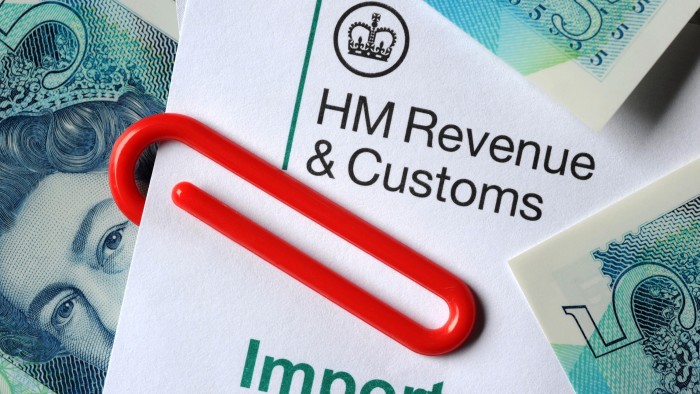Share this @internewscast.com
Stay informed with free updates
In 2023-24, UK small businesses defaulted on 40 per cent of the corporation tax they owed, which has sparked criticisms that HM Revenue & Customs has “lost control” over this sector.
Even though the overall “tax gap”—the difference between what is due and what is collected—narrowed during the year, the corporation tax unpaid by smaller companies increased from £12.3bn to £14.7bn, as revealed by HMRC figures released on Thursday.
Of the £36.7bn that HMRC estimated was owed by small businesses during the year, only £22bn was collected — leaving 40.1 per cent missing.
In 2019-20, small businesses—those with turnover under £10mn and fewer than 20 employees—comprised less than half of the UK’s tax gap. By 2023-24, this figure had climbed to 60 per cent.
“HMRC has done an impressive job reducing the large company tax gap in the last 20 years,” said Dan Neidle, founder of the Tax Policy Associates think-tank. “But they seem to have lost control of the small company tax gap.”
The Federation of Small Businesses said that many companies found the tax system too complicated and HMRC unresponsive when they raised questions.
“HMRC needs to focus on answering its phones, reducing response times, and helping people navigate the tax system,” said policy head Tina McKenzie.
“This would improve the tax take and reduce the productivity hit from a non-responsive tax authority that many of the 99 per cent of businesses in the UK who are classed as ‘small’ currently struggle with.”
The total amount of tax due that was not collected in the year was £46.8bn, a tax gap of 5.3 per cent — down from a revised figure of 5.6 per cent in 2022-23. In total, HMRC collected £829.2bn in taxes during 2023-24.
While small businesses were the biggest group responsible for the tax gap, HMRC estimated wealthy people “made up the lowest proportion of the tax gap” at 5 per cent in 2023-24.
The finding drew criticisms from some, particularly as the National Audit Office recently warned the HMRC might be underestimating the tax gap from wealthy people.
Caitlin Boswell, head of advocacy and policy at Tax Justice UK, a pressure group, said: “Evidence suggests that the level of tax non-compliance among the super-rich is far higher than estimated, with eye-watering sums of hoarded wealth being held offshore and out of sight of HMRC.”
She added: “The real story here is that the UK’s tax authority doesn’t have the resources or backing it needs to tackle the tax gap which is likely far larger than what is published.”
Treasury minister James Murray said: “Every pound of tax uncollected puts a greater burden on honest taxpayers and deprives our public services of vital funding.”
He added that the government had set out plans to raise an extra £7.5bn “through the most ambitious ever package to close the tax gap . . . We are determined to go further and faster to make sure everyone pays their fair share.”
At the spending review, the government gave £1.7bn to HMRC over the next four years to fund an additional 5,500 compliance and 2,400 debt management staff.






